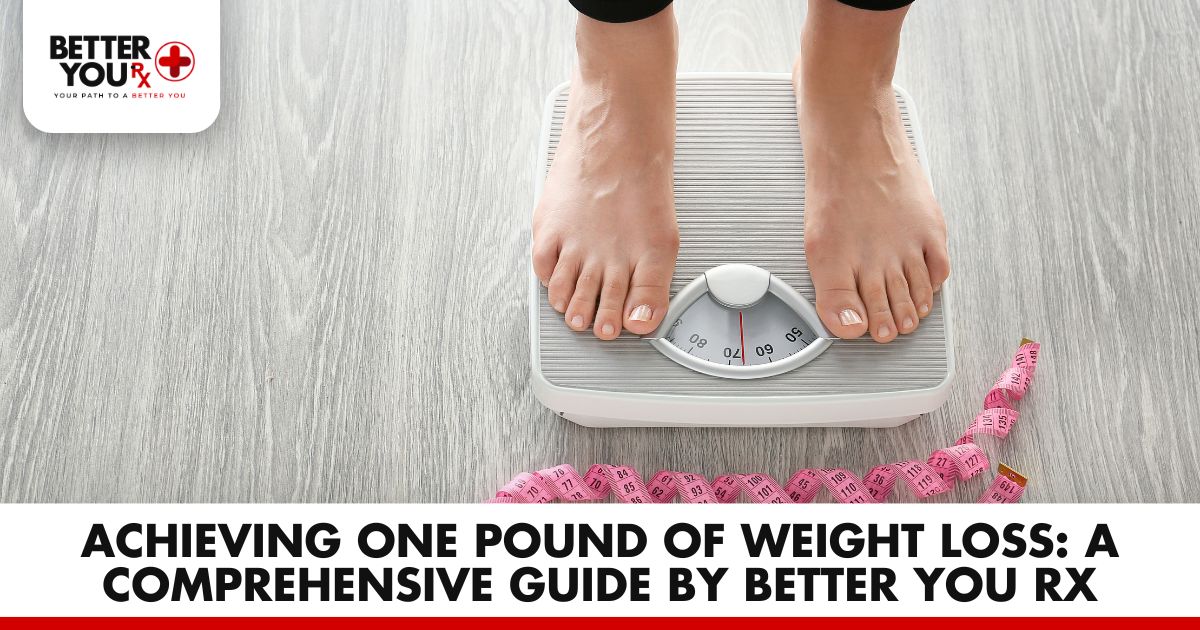Maximizing the Effectiveness of GLP-1 Receptor Agonists for Weight Loss
The journey towards a healthier weight can be immensely personal and sometimes complicated. GLP-1 receptor agonists have emerged as a significant player in this journey, offering assistance to those who struggle to lose weight through diet and exercise alone. At Better You RX, we aim to provide insights, medical alternatives, and lifestyle support to elevate your overall health.
With that in mind, let’s dive into how you can enhance the effectiveness of GLP-1 receptor agonists on your weight loss journey.
Understanding GLP-1 Receptor Agonists
GLP-1 receptor agonists are a class of medication that mimic the incretin hormones, which regulate blood sugar and appetite. These medications help patients with weight loss by increasing insulin production, decreasing glucagon secretion, and slowing gastric emptying.
The Various Forms of GLP-1 Receptor Agonists
Common GLP-1 receptor agonists include:
- Liraglutide (Saxenda)
- Semaglutide (Ozempic, Rybelsus)
- Dulaglutide (Trulicity)
- Exenatide (Byetta, Bydureon)
Enhancing Effectiveness of GLP-1 Receptor Agonists
Lifestyle Modification – The Foundation
Lifestyle modification suggestions that could improve the effectiveness of GLP-1 receptor agonists for weight loss include:
- Healthy Eating: Adopting a balanced diet rich in whole foods, fibers, and proteins while low in simple carbohydrates and unhealthy fats.
- Consistent Physical Activity: Incorporating aerobic and strength training exercises into your routine can enhance weight loss efforts.
- Adequate Sleep: Achieving 7-9 hours of quality sleep per night can positively impact weight loss.
- Stress Management: Techniques such as mindfulness, yoga, or even counseling can help manage the stress that often hinders weight loss.
- Hydration: Drinking plenty of water can aid digestion and metabolism, supporting the medication’s function.
Medical Considerations
- Dosage Consistency: Following the prescribed medication regimen without missing doses is essential.
- Monitoring: Regular check-ins with a healthcare provider to adjust dosages or address side effects and overall progress can be invaluable.
- Dealing with Side Effects: Understanding and managing common side effects with a healthcare provider’s help can improve medication adherence.
Support Systems and Professional Guidance
Support and professional guidance can vastly improve the success of using GLP-1 receptor agonists:
- Healthcare Team: Working closely with your healthcare team, including dietitians and endocrinologists, can provide tailored advice and adjustments to your treatment.
- Support Groups: Joining support groups, either in-person or online, can provide encouragement and shared experiences to keep you motivated.
Maintaining Long-Term Success
Long-term success with GLP-1 receptor agonists often involves:
- Setting Realistic Goals: Weight loss is a marathon, not a sprint. Realistic, gradual goals are more sustainable.
- Embracing Incremental Progress: Celebrating small wins can build confidence and motivation.
- Adjusting to Plateaus: Understanding that weight loss plateaus are common and developing strategies to overcome them with your healthcare provider is essential.
Beyond The Pill: Addressing Psychological Factors
Addressing psychological factors such as emotional eating and food addiction with professional help can lay a stronger foundation for the medication’s success.
Accessibility and Affordability with Better You RX
- Streamlined Access to Medications
Better You RX understands the importance of accessibility when it comes to healthcare. This is why we offer support and information to those who are considering purchasing medications from Canada to the US.
- Affordability is Key
With rising healthcare costs, Better You RX assists individuals in exploring cost-effective options without sacrificing quality or safety.
Final Thoughts
Incorporating GLP-1 receptor agonists into your weight loss strategy can be transformative. With a comprehensive approach that involves lifestyle changes, professional guidance, and support systems, the potential benefits of these medications can be maximized.
Better You RX is dedicated to empowering you through your health journey, offering expertise, resources, and accessible solutions for your medication needs. Together, we move towards a better you.










